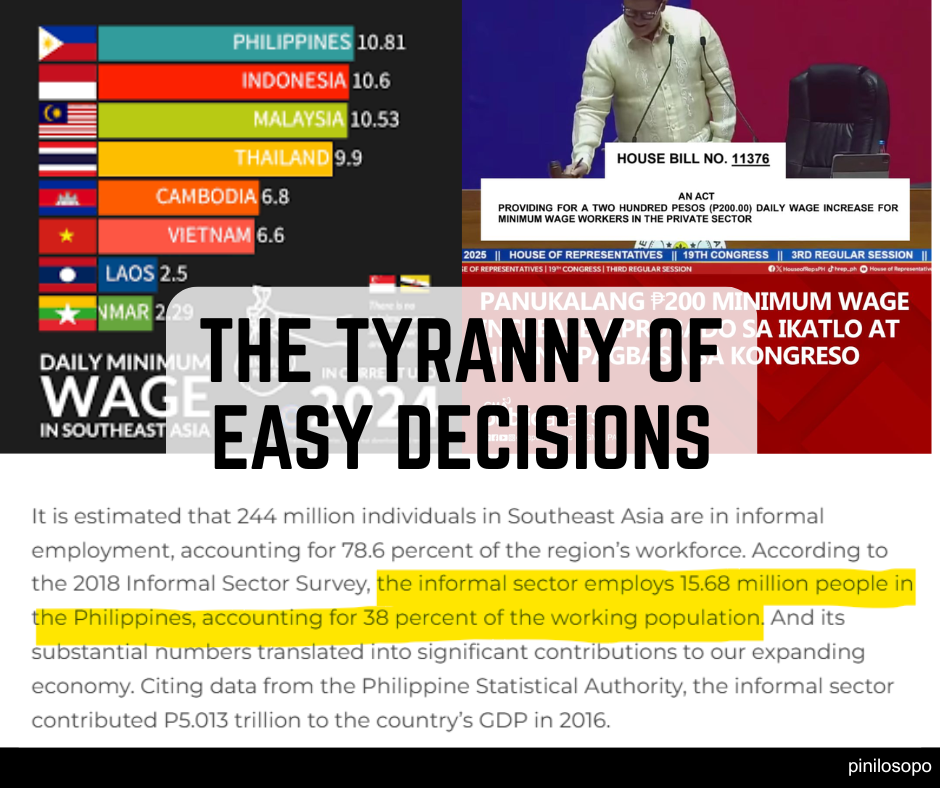
Just recently, the House of Representatives approved a P200 daily minimum wage increase for private sector workers, with an astounding 172 affirmative votes, zero negatives, and zero abstentions.
While it seems like a good idea on paper, appearing to support some of the most vulnerable sectors of the workforce, it is all too easy to champion such a measure without fully considering its long-term consequences. This is the tyranny of easy decisions: when lawmakers, eager to appear pro-poor and avoid political backlash, reach for quick fixes that ultimately may create more harm than good.
The Philippines already has the highest minimum wage in Southeast Asia, yet few would argue that we are the most prosperous or enjoy the best quality of life. That’s because a high minimum wage does not automatically translate into a living wage. What good is a higher income if it is immediately eaten up by rising costs of living and inflation?
Even worse, many forget who will be most negatively affected by this development. The poorest and most vulnerable are not necessarily those earning minimum wage, but rather the millions working in the informal sector: street vendors, small farmhands, domestic workers—people who are typically hired off the record, without formal protections or benefits. According to the 2018 Informal Sector Survey, the informal sector employs 15.68 million Filipinos, accounting for 38 percent of our workforce. When inflation inevitably follows, the rich and middle class will just live a little less comfortably, and minimum wage workers may at least see some nominal relief from the wage hike. But the informal workers? They will see no increase in income—only higher prices that hit them the hardest.
And yet lawmakers are pressured to support this measure because it seems like an obvious way to help the masses, when in reality it is the most convenient and politically expedient path. Voting against it would risk accusations of being anti-poor, making it political suicide for any representative or senator who dares to oppose it.
This is the real tyranny of easy decisions: our leaders choose a band-aid solution—an artificial wage hike that simply passes the burden onto the private sector—instead of tackling the root causes of poverty and low quality of life. They avoid the hard work of investing in education, manpower development, industry, agriculture, and logistics—solutions that would create more and better jobs, raise productivity, and actually make life better for all Filipinos.
Let us hope that, if the economic impact proves truly unacceptable, our Senators and the President will find the courage to make the difficult but necessary choice, whatever that may be. Sometimes, the easy choice is the wrong one, and the cost of taking the easy way out is one we all eventually have to pay.